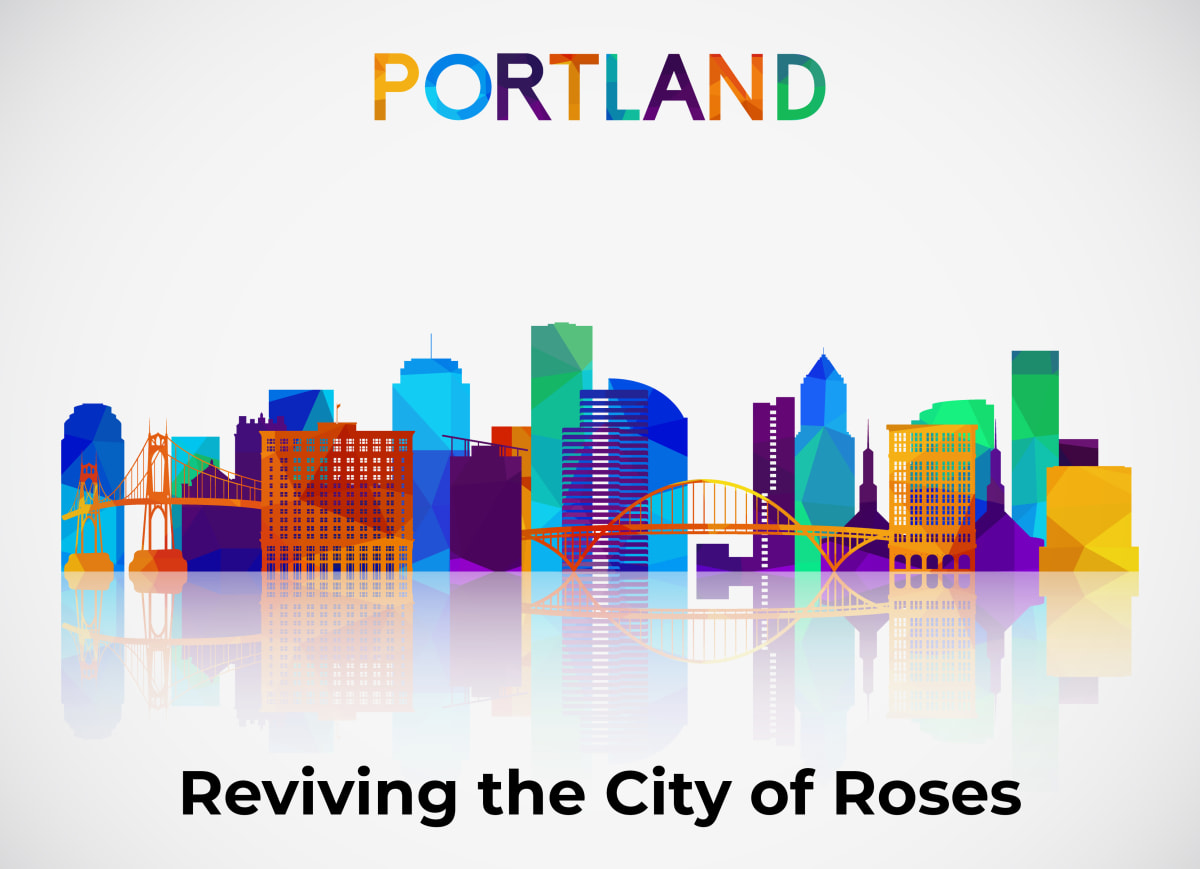The hottest ticket in town this March was Becker Capital’s Perspectives event titled: Reviving the City of Roses. The idea for this year’s Perspectives theme came about after our firm examined the pros and cons of keeping our headquarters in downtown Portland. We overwhelmingly decided that we want to be part of the city’s comeback and committed to a lease that moves us into a bigger footprint on the 26th floor of the PacWest building. However, we wanted to hear from our city’s new leadership about what was being done to address some of the significant challenges that have been troubling our corner of Oregon.
For decades, Portland had been considered a model for urban success: a destination for creative, enterprising people who wanted to live in a walkable community desirably located between rivers and mountains. Portland was known for its best practices developing transit, parks, and bicycle paths, a vibrant food scene, along with inexpensive and plentiful housing. Eventually, Portland became a victim of its own success, as people moved to the city in droves, driving up housing demand along with costs. When Covid hit, problems such as homelessness, crime, mental health disorders, and drug use increased significantly. Public policies that were intended to relieve some these issues, such as a law that allowed “personal” amounts of illegal drugs and sidewalk camping, seemed to amplify the issues, and made our city seem unwelcoming, to both visitors and our own citizens.
Is it possible for Portland to once again be known for both its beautiful location and sustainable and forward-thinking urban policy? How do we reclaim our reputation as a safe and vibrant community?
We were interested in the topic, but we did not realize how many of you would be interested. We had over 300 RSVPs within 24 hours of sending out invites and we had to cap the attendees at 500!
Our discussion with community leaders: We invited Columbia Sportswear’s CEO and Board Chair Tim Boyle, Portland’s Mayor Keith Wilson, Multnomah County’s District Attorney Nathan Vasquez, and ECONorthwest’s Senior Policy Advisor and President Emeritus John Tapogna to join us at our Perspective’s event on March 12th to discuss their ideas on what is needed to “bring Portland back.”
Challenges and solutions: Our President & CEO, Pat Becker led the panelists through a robust conversation about Portland’s challenges and potential solutions. The panelists were asked how they would measure revitalization success: Population growth was Tapogna’s measurement; population and job growth are Mayor Wilson’s metrics, while Vasquez noted safety: can you live, work, and walk in Portland and feel safe? Boyle’s thoughts on the need for a competitive tax structure contributing to Portland’s revitalization struck a chord with many in the room. One of the most pressing challenges discussed was homelessness, which continues to be a visible issue in neighborhoods and public spaces, particularly in the downtown area.
Homelessness: This very visible challenge has led some residents to feel the city’s quality of life is declining. Each panelist agreed that Portland needs to address homelessness and city cleanliness to increase the city’s livability. Mayor Wilson campaigned on his plan to eliminate homelessness for the 5,000+ people that are living unhoused by the end of 2025. He has been meeting with the mayor of Boise, the city that has claimed Portland’s seat as one of the fastest growing cities in the country. Wilson is planning to follow Boise’s lead in cleaning up the trash and enforcing night-time shelter, which Wilson equates to simply caring for people. Vasquez says that he wants to be part of the homelessness solution, saying that sending someone that is homeless to prison is easy, but it is the wrong thing to do. Boyle noted that cleaning up the garbage would go a long way towards residents feeling better about the city.
Local Tax Load: Pat asked the panel if the local tax load is accelerating us into the “doom loop” (defined as a spiral in which an economic weakness leads to decreased tax revenue, which makes it harder to pay for public services). Tapogna noted that Portland employs some strange fiscal math, highlighting that rising costs related to wage equity, PERS, and an expanded set of corporate and personal taxes have led to a broken model. Local taxes - such as the Clean Energy Fund, Supportive Housing Services tax, and Preschool For All have burdened top earners and our tax rates fall second nationally, only behind NYC. These taxes are earmarked for specific purposes, but a significant portion of the allocated funds remain unspent, amounting to over $1.2 billion unused. He noted the contrast between Vancouver’s regressive tax system above the river, which is spurring city growth, and Portland’s progressive tax system below the river, which is leading to population outflow. Boyle received a standing ovation when he stated that he does not mind paying taxes but wants to see results for the money.
Other discussion topics included police response times, transportation, budget concerns, the redesigned Portland City government, philanthropy, community leadership, and the role of a downtown core built around a city center. Thank you to our panelists for a discussion that was thought-provoking, lively, and hopeful. The discussion inspired our audience, who appeared energized and excited about Portland’s future and committed to contributing to the city’s revitalization.
As Portland continues to grapple with these challenges, Becker Capital remains committed to being part of the solution. The discussion at our Perspectives event reinforced that by focusing on community collaboration, strong leadership and investment, Portland’s best days can still be yet to come.
